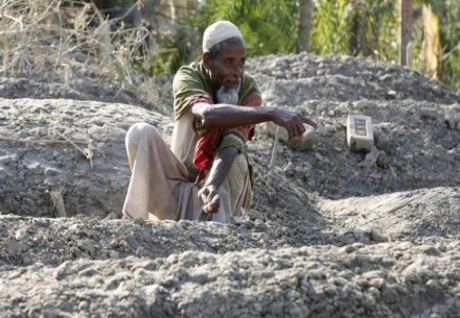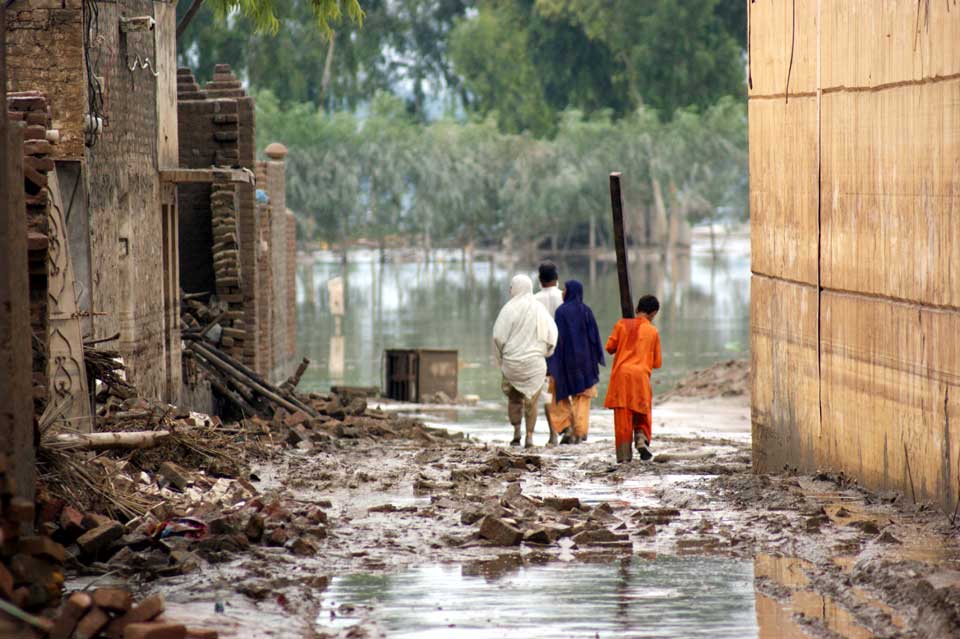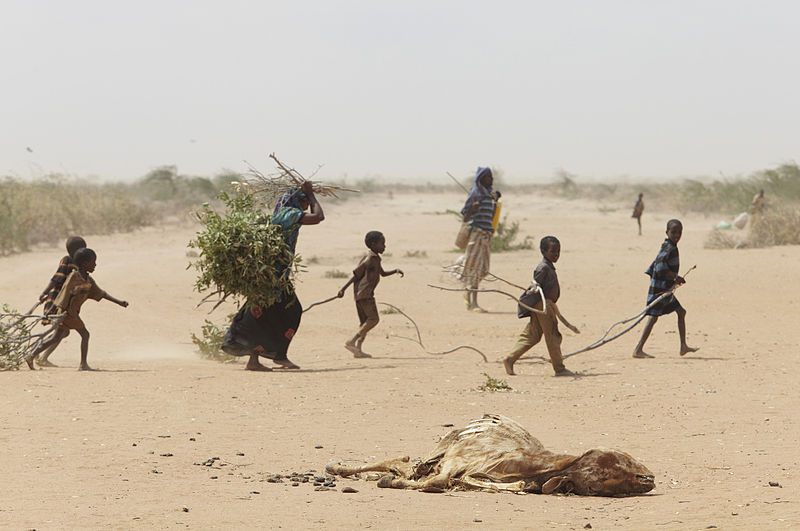
Workshops for Capacity Building
Disseminating information and educational materials is a key element of response to natural disasters. Electronic media greatly expedite the process of dissemination and enable prevention messages to reach an expanded audience. This project will cover these aspects and develop partnership with media personnel, radio channels and end users. So, this project will be setting a model by engaging local electronic and print media for dissemination of translated climatic outlooks to rural communities of Pakistan. As a capacity-building initiative for country journalists about their vital role in disseminating early climatic warnings for vulnerable communities, Pakistan Meteorological Department (PMD) and the World Food Programme (WFP) are jointly organizing a two-day workshop each in Gilgit, Peshawar, Multan and Muzzafarabad for establishing network of media personnel in the respective regions. These two-day Media Briefing Workshops are aimed at providing first-hand information on and understanding of the subject to journalists, straight from the key stakeholders in the field – the disaster managers, policy-makers, climate change experts and civil society representatives. Journalists from electronic and print media of the country will have the unique opportunity to interact with and be briefed by these people on May 24-25, 2011 in the aforementioned cities. Leading national experts from DRM Agencies and PMD will present their multi-hazard EWS and share their experience and lessons learnt in interactive sessions with the participants
Gilgit Media Workshop
This will provide the opportunity for the participants to discuss a number of pertinent topics related to institutional coordination and operational aspects, emergency preparedness as well as dissemination plans/priorities based on warning levels. To facilitate the discussions and analysis of national and regional cooperation needs and requirements, the participants will be divided into three working groups. Within each working group, national delegations consisted of representatives from DRM agencies and PMD. Prior to the workshop a "questionnaire on Early Warning Systems" (Annex IV) will be disseminated among the participants in advance to the Workshop to carry out a preliminary assessment of national EWS capacities as the basis for discussions during the working groups.
National Meteorological and Hydrological Services have a unique responsibility in Early Warning System (EWS) of state. To fulfill its responsibilities, Pakistan Meteorological Department (PMD) is playing significant role to integrate scientific advancements into social actions for sustainable socio-economic development of society. Viable technology has been adopted over time and in effect, it is now possible in various meteorological fields to provide skillfully medium range early warnings for disaster risk management with special emphases on socio-economic needs. PMD is extending services in the fields of Meteorology, Hydrology, Agricultural Meteorology, Seismology, Geomagnetism, Astronomy and Astrophysics.
Globally, over the last 50 years, while economic losses linked to extreme hydro-meteorological events have increased by nearly 50 times, loss of life caused by these hazards has decreased significantly. This has been attributed to early warning systems, linking information from monitoring and forecasting of hydro-meteorological hazards to emergency preparedness and response, especially in some of the most vulnerableregions.
Effective early warning systems (EWS) have four components, including: (i) hazard detection, monitoring and forecasting; (ii) analyzing risks and incorporation of risk information in emergency planning and warnings; (iii) disseminating timely and “authoritative” warnings; and, (iv) community emergency planning and preparedness and the ability to activate emergency plans to prepare and respond, with coordination across agencies involved in EWS, at national to local levels; These four components need to be coordinated across many agencies at the national to local levels. Failure in one component or lack of coordination across them would lead to the failure of the whole system.
Over the past decade, there has been significant international attention to this topic. A detailed synthesis of the good practices being implemented across the globe has revealed that the benefits of scientific knowledge cannot be fully gained without the effective participation and strong networking of media.
As a capacity-building initiative for country journalists about their vital role in disseminating early climatic warnings for vulnerable communities, Pakistan Meteorological Department (PMD) and United Nation World Food Program (UN-WFP), jointly organizing a series of these workshops for establishing network of media personnel for the subject purpose.Read more |
Contents
Forcast & Warnings
- City Forecast
- Forecast for Media
- Flood Forecast
- Flood Warning
- Cyclone Warning
- Tsunami Warning
- Multan Media Workshop
-
- Peshawar Media Workshop
-






